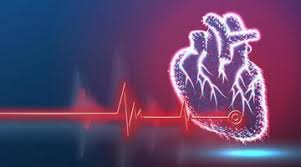9 Things Your Feet Can Tell You About Your Liver Problems
9 Things Your Feet Can Tell You About Your Liver Problems
The liver is responsible for filtering toxins and waste products from the body, and when it's not functioning properly, it can lead to a variety of symptoms throughout the body, including the feet. Here are a few ways in which liver problems can manifest in the feet:
Yellowing of the skin and nails:
A common symptom of liver problems is jaundice, which can cause yellowing of the skin and nails. This is due to a buildup of bilirubin, a waste product that the liver normally removes from the body.
Swelling:
Liver problems can cause fluid buildup in the body, which can lead to swelling in the feet and ankles.
Itching:
Liver problems can also cause itching, which may be particularly noticeable in the feet and hands.
Spider veins:
Spider veins are small, thin blood vessels that appear close to the surface of the skin. They may be a sign of liver problems, as the liver is responsible for regulating blood flow.
Clubbing of the nails:
Clubbing is a condition where the tips of the fingers or toes become enlarged and the nails curve around the fingertips or toes. This may be a sign of liver problems.
Cramping and muscle weakness:
Liver problems can also lead to cramping and muscle weakness, which may affect the feet and legs.
Numbness and tingling:
Liver problems can cause nerve damage, which may lead to numbness and tingling in the feet and hands.
Plantar fasciitis:
Plantar fasciitis is a condition where the plantar fascia, a thick band of tissue that runs along the bottom of the foot, becomes inflamed. This may be a sign of liver problems.
Raynaud's phenomenon:
Raynaud's phenomenon is a condition where the blood vessels in the hands and feet constrict in response to cold or stress, causing them to turn white or blue. This may be a sign of liver problems.
It's important to note that while these symptoms may be associated with liver problems, they can also be caused by a variety of other conditions. If you're experiencing any of these symptoms, it's important to talk to your doctor to determine the underlying cause and receive appropriate treatment.bb












Comments
Post a Comment